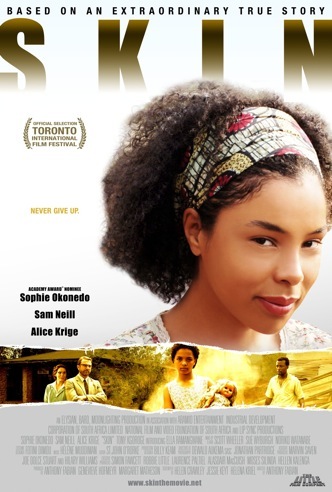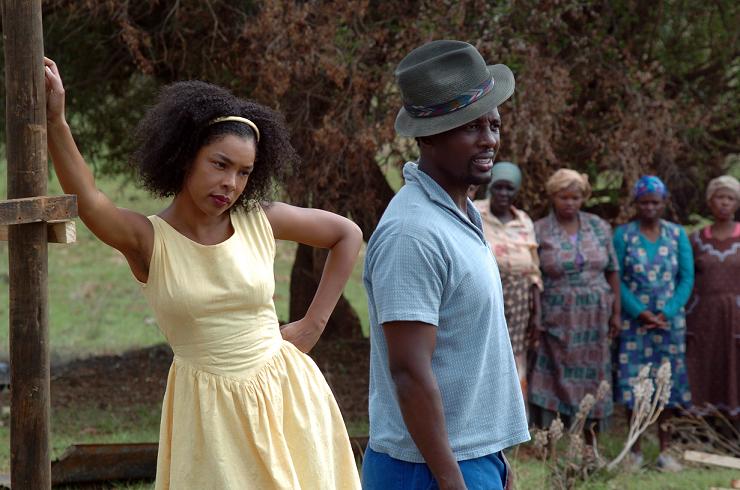
Now, it is a holiday dubbed Youth Day in the new liberated Republic of South Africa.
In New York, a Harlem-based organization dedicated to progressive media by and about people of color, Imagenation, marked this day with a film screening and performance.
Audience members who bustled outside the National Black Theatre in Harlem were greeted by native murals, paintings and statues. The theatre itself was an ode to Africa.
The evening was set alight with the South African National Anthem sung by Thandi then followed by a musical tribute from Masauko of South African acoustic/neo-soul/hip hop troupe Blk Sonshine who introduced the main event.
SKIN, an award-winning film directed by Anthony Fabian, was set in apartheid-riddled South Africa.
An atypical movie about the suffering of Africans, the film stars Sophie Okonedo (Hotel Rwanda) who plays Sandra Laing, a Black African-looking girl born to White parents.
"I think it's important to show educational movies, which SKIN clearly is, because it shows another aspect of Africa people don't think about," said Moikgantsi Kgama, executive director of Imagenation. "I wanted to show something that African-Americans could identify with."

Classification during this time of segregation reigned supreme as Whites were positioned at the top of the pyramid, then Indians, then Coloreds (mixed race) and Black Africans at the bottom. The color of an individual's skin determined their opportunities for social and educational advancement and, ultimately, their station in life.
In the film, Sophie's race is legally switched from White to Colored and then back again: first, based on her appearance - looking distinctly Black - and then back to White after research showed presence of polygenic inheritance. This proves that the majority, if not all White South African, carry Black genes.

Falling in love with a Black man causes her to be estranged from her family and she ends up living in a poor Black village. It was a far cry from the relative luxury she was born into.
The story is no doubt a powerful one for it is a sobering tale that puts a whole new spin on the issue of race and identity, leaving audiences perplexed.
She is equally as White as she is Black. So, which one is she?
Imagenation will be hosting another screening at the National Black Theatre on July 14. It is American Violet, directed by Tim Disney, depicting the true story of a a single African-American mother who struggles to clear her name after being wrongly accused and arrested for dealing drugs in an impoverished town in Texas.
For more information, visit www.imagenation.us

